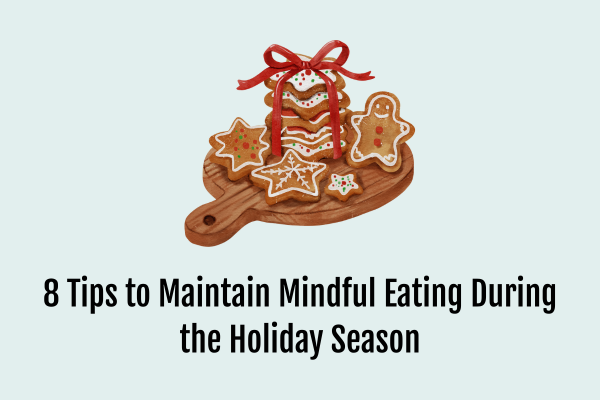Understanding Food Rules: How They Affect Our Relationship with Food
Points By: Leah Kuhn
Food rules are more than just guidelines for what we eat; they often reflect deeper beliefs about morality and control. These rules can significantly impact our relationship with food, sometimes leading to unhealthy patterns and stress around food. By examining what food rules are and how they affect us, we can work towards a more balanced and intuitive approach to eating.
What Are Food Rules?
Food rules are essentially extensions of the morality we attach to food. Instead of basing our food choices on physical, mental, social, or emotional needs, these rules are driven by rigid, often arbitrary standards. These can manifest in various forms, such as:
- Restrictions: Prohibiting certain foods or food groups entirely, based on the belief that they are “bad” or “unhealthy.”
- Moral Judgments: Imposing rules about how food should be prepared or consumed, such as the belief that there’s a “right” way to make a meal.
- Unchanging Habits: Following old patterns or habits without regard for current needs or desires, such as eating at specific times or in specific quantities, regardless of hunger or satisfaction.
Food rules often give us a false sense of control or health, but they can undermine our well-being in several ways.
The Impact of Food Rules
1. Increased Tendency to Binge
One of the paradoxical effects of food rules is the tendency to binge on restricted foods. When certain foods are labeled as “off-limits,” they can become more appealing. The restriction creates a psychological pressure that can lead to binge eating when those foods are eventually consumed. This binge-like behavior often feels addictive and is fueled by the deprivation caused by the food rules.
2. Food Obsession
Food rules can contribute to an unhealthy obsession with food. When we adhere strictly to these rules, we might find ourselves constantly thinking about what we can or cannot eat, which can take up significant mental energy. This preoccupation with food can detract from our ability to enjoy meals, social interactions, and other aspects of life.
3. Impaired Social and Emotional Well-being
Strict food rules can also affect our social and emotional well-being. They may lead to avoidance of social situations involving food or create stress and anxiety around meals. For example, someone with rigid dietary rules might feel uncomfortable at social gatherings where food is a central focus, which can isolate them from friends and family. Additionally, the guilt or shame associated with breaking food rules can impact self-esteem and emotional health.
4. Increased Stress and Its Consequences
Maintaining strict food rules can be stressful, and chronic stress has several negative effects on the body. Stress can disrupt hormonal balance, impair gut health, and weaken the immune system. This stress response can affect metabolic rates, potentially leading to further health issues, including digestive problems and immune system deficiencies.
5. Impaired Metabolic Rates
Food rules can also impact our metabolic rates. For instance, extreme restriction or irregular eating patterns can slow down metabolism, making it harder for the body to efficiently process and use energy. This can lead to issues like fatigue,difficulty maintaining a healthy weight, and more.
Moving Towards a Healthier Relationship with Food
To foster a healthier relationship with food, it’s essential to challenge and reconsider rigid food rules. Here are some steps to help shift away from restrictive thinking:
1. Focus on Needs: Pay attention to your physical, mental, social, and emotional needs rather than adhering to arbitrary food rules. Eat foods that nourish your body and satisfy your hunger.
2. Practice Intuitive Eating: Learn to listen to your body’s hunger and fullness cues, and choose foods that make you feel good both physically and emotionally.
3. Embrace Flexibility: Allow yourself to enjoy a variety of foods without judgment. Flexibility in eating helps reduce the psychological burden of food rules and supports a more balanced approach to nourishment.
4. Seek Support: If food rules are deeply ingrained, consider seeking support from a dietitian, therapist, or counselor who can help you address underlying issues and develop a healthier relationship with food.
Food rules can create a false sense of control and health, often leading to increased stress, food obsession, and impaired well-being. By focusing on your body’s needs and practicing intuitive eating, you can move towards a more balanced and enjoyable relationship with food.




.png)
.webp)

